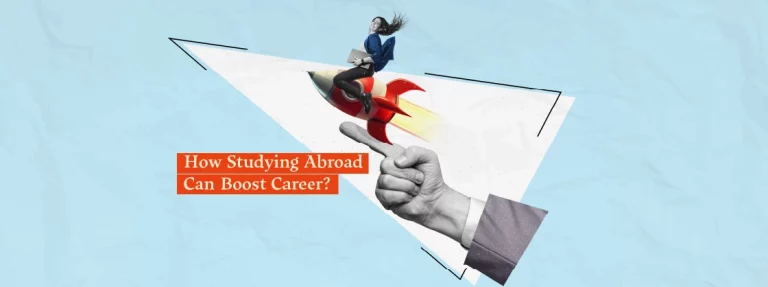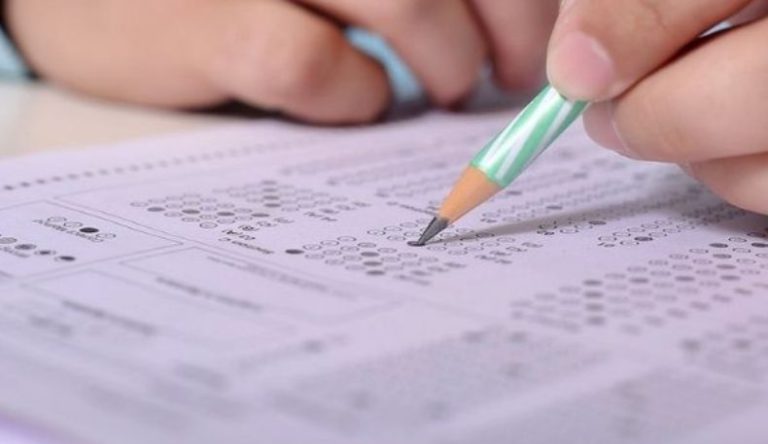Table of Contents
Graduate Record Examination or GRE is a computer-based or paper-based standardized test that is an admission requirement for many graduate schools (university/colleges that grant master’s degrees) in different countries. The sole aim of the GRE is to measure verbal reasoning, quantitative reasoning, analytical writing, and critical thinking skills that have been acquired over a long period of learning. The GRE syllabus consists of certain specific algebra, geometry, arithmetic, and vocabulary sections. Different colleges demand different GRE scores for admission. The highest GRE score is 340. A score above 320 is considered to be very good and the chances of selection are higher.
This exam tests students on a lot of different subjects. It is surely not a piece of cake. The student must be thorough while preparing for it. In that case, a balanced approach is required. Before jumping to the step-by-step guide on how to prepare for the GRE, we’ll first focus on different sections of this exam.
Verbal section
This session aims to assess reading comprehension, critical reasoning, and vocabulary usage. The verbal test is scored on a scale of 130–170. Each verbal section consists of 20 questions to be completed in 30 minutes. Each verbal section consists of text completion, sentence equivalence, and reading comprehension.
Quantitative section
This session aims to assess basic high school-level mathematical knowledge and reasoning skills. The quantitative test is scored on a scale of 130–170, in 1-point increments. Each quantitative section consists of 20 questions to be completed in 35 minutes and consists of quantitative comparison, problem-solving, and data interpretation.
Analytical writing section
The analytical writing section consists of an issue task and an argument task. The writing section is graded on a scale of 0–6, in half-point increments.
Issue Task-The test taker is given 30 minutes to write an essay about a topic. Issue topics are selected from a bunch of questions and the students preparing for the GRE may access the pool of tasks on the ETS website.
Argument Task- The test taker is given a series of facts and considerations leading to a conclusion and is asked to write an essay that critiques the argument (good and bad points). The test taker is also asked to make suggestions on how to improve the logic of the argument. The time allotted for this essay is 30 minutes.
In addition to this, you’ll see two more sections
Unscored (may be either Verbal Reasoning or Quantitative Reasoning)
Research (used for ETS research purposes)
Now you must have gained an overview of the different sections. Let’s delve into their preparations.
Verbal Reasoning
If you are an avid reader and a regular reader then you might not worry about this section. The trick is simply to learn new words and improve your vocabulary. I would recommend the following resources to enhance your vocab: Memorize app, Magoosh Flashcard app.
Read comprehension passages daily. Try to summarize the main idea of the passage and make pointers on what the author is trying to say. Going through articles from the Washington Post, New York Times, etc. will be useful as you will come in contact with the passages of similar standard and style in your GRE.
Quantitative Reasoning
You need to have a strong grip on topics like algebra, geometry, applied mathematics, data interpretation, and statistics. You should take online practice tests to gauge your preparation and practice more in sections where you’re weak. ETS’ official practice tests are also recommended. For theory, high scorers recommend the following publishers: Manhattan, ETS, or Princeton.
Analytical Writing Assessment
Study materials and practice tests are available online. You should plan your schedule systematically and make sure you are familiar with all topics. Once you book your slot for the test, you will be able to download the official ETS guide and a CD containing 2 full practice tests.
Now you must have gained a decent idea of how to prepare your study schedule and find the perfect resources for the preparation.
Here are some questions the students frequently ask
- How long is my GRE score valid for?
Answer- Your GRE score will be valid for 5 years from the date that it is issued. - What is the fee for the examination?
Answer- USD 205
- What is the duration of the exam?
Answer- 3 hrs 45 minutes
- What is the eligibility?
Answer- Bachelor’s degree
- What is the GRE syllabus for the subject test?
Answer- Chemistry, maths, physics, psychology.
- Where to register?
Answer- On the ETS website
Please visit the ETS website for dates and sample papers. Always remember that it is up to you how you want to study. Just be consistent and keep your workflow organized. Schedule days for different directions and always reach out to those who have given the exam. And always remember – Practice makes you perfect!
GyanDhan, India’s first education loan marketplace, along with offering free help in education loans from top lenders in India, also provides in-depth details about the GRE exam. You can visit their website to read about the GRE exam syllabus, eligibility, dates, and more.

















